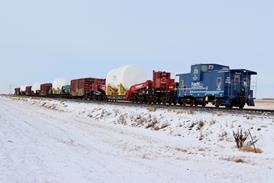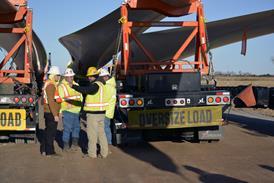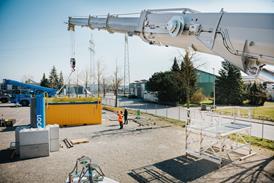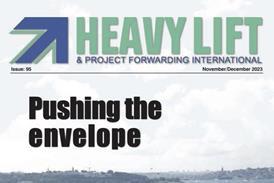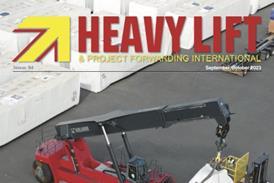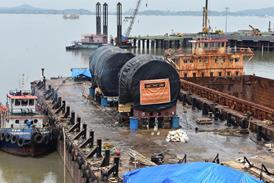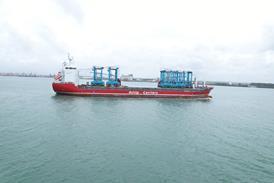October 4 - Communication between manufacturers and service providers is essential for successful logistics in the wind energy sector, says the Seaports of Niedersachsen.
The German port group invited customers to a lecture and discussion event at the recent HUSUM WindEnergy fair.
According to Seaports of Niedersachsen, in the logistics of wind turbines both on and offshore, there are still many unknown parameters. Only through early coordination and communication between manufacturers, ports and shipping companies, can useful and efficient processes be developed. In the offshore wind energy especially, much assembly work must be done on land to facilitate the work at sea and the German port group says a number of its terminals have perfect infrastructure for this.
Andreas Bullwinkel, managing director of Seaports of Niedersachsen said that many companies in the wind energy industry have discovered the optimal conditions for port-related manufacturing and logistics facilities in Niedersachsen, and a genuine wind energy cluster has now formed. He called on wind turbine manufacturers, and the ports targeted with early involvement in their logistics concepts to provide information on project pipelines, in order to find the best possible solutions.
Rainer Bröring, CEO of GE Wind Energy GmbH, described the requirements that a manufacturer of wind turbines has of a port and said that the port of Brake, which GE Wind Energy has used for several years as a logistics centre is a good example.
Jan Müller, CEO of J. Müller AG, stressed that for Brake, the area of wind energy logistics has become increasingly important and it will continue to offer complete services for the industry. This includes product carrier management, service and spare parts logistics and maintenance for wind turbine manufacturers.
Cuxhaven has established efficient infrastructure and heavy load handling equipment as a base port for the offshore wind energy and Hans-Peter Zint, managing director of Cuxport GmbH, outlined the development of Cuxhaven on the production and logistics base of renewable energy.
Dr Stephan Bormann, deputy managing director of BARD Holding GmbH described some of the logistical challenges of erecting turbines on the high seas, and said that as much work as possible should be done on land due to the limited time and weather window at sea. That means that manufacturers have significant space requirements in the ports and special demands on the installation vessels.
Knut Gerdes, managing director of EMS Offshore GmbH explained the company's development of new concepts for transport and supply logistics for offshore wind farms. Like the previous speakers, he pointed to the need for good communication between the wind turbine manufacturers, shipping companies, ports and other service providers.

